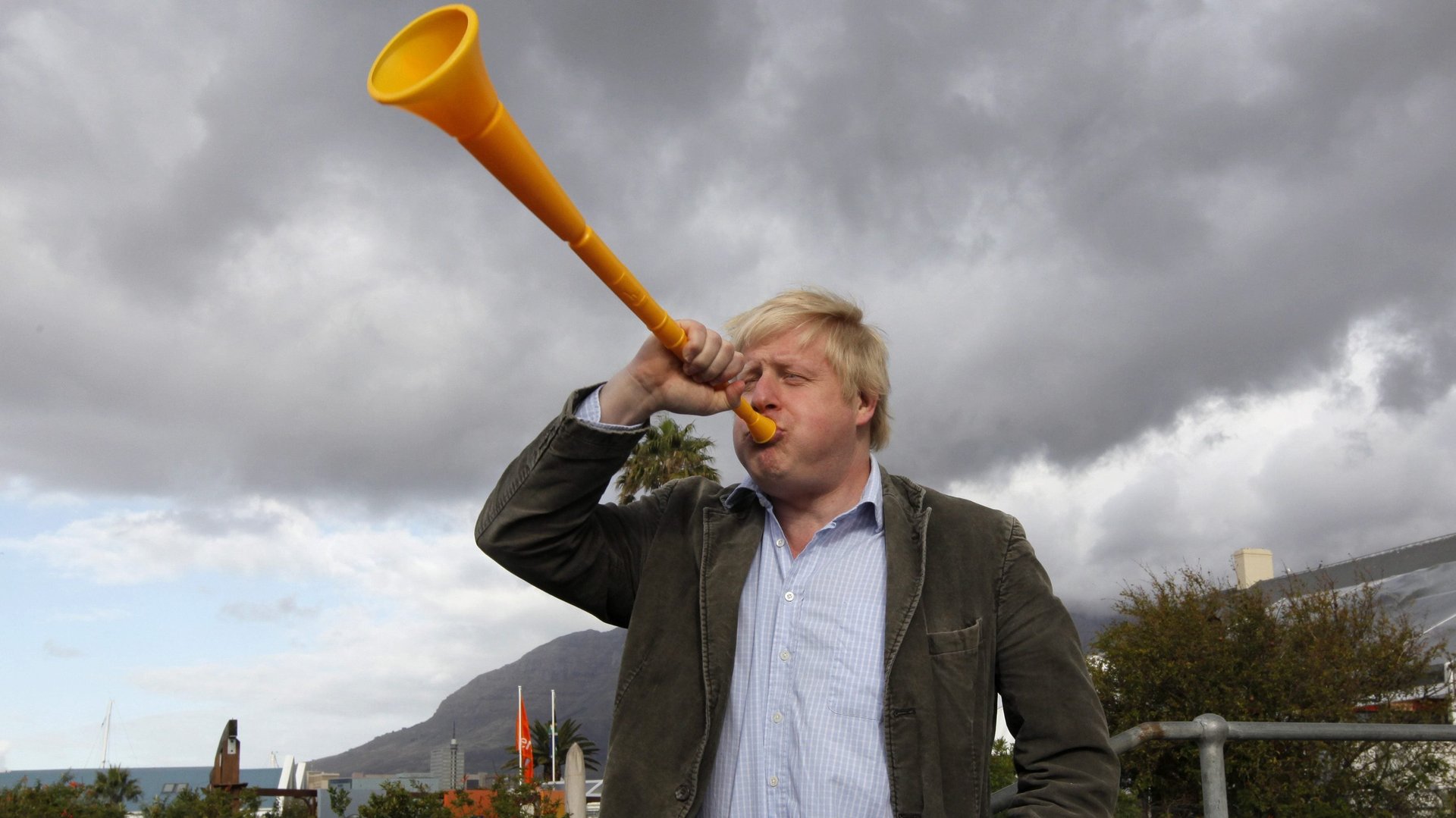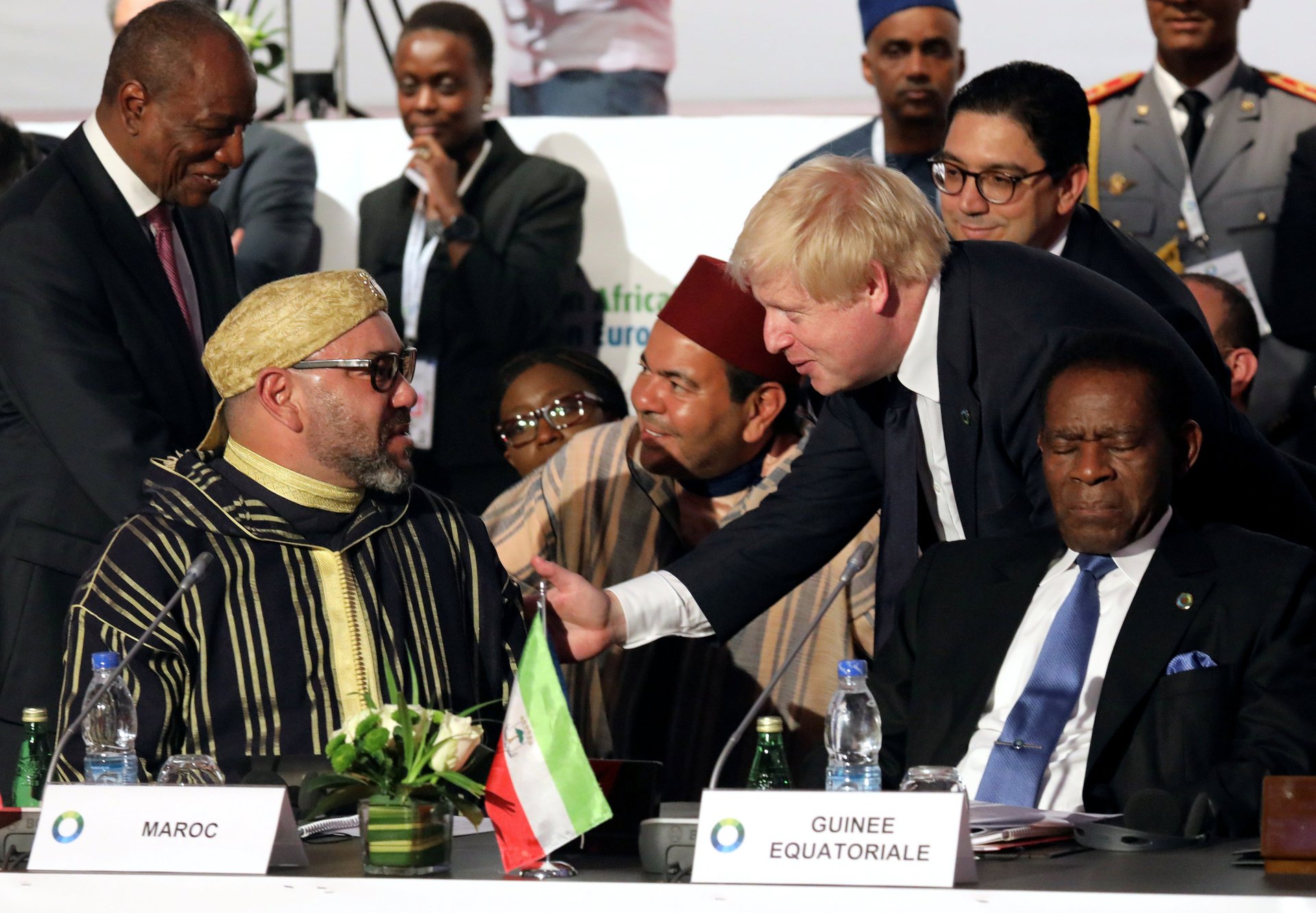African governments should brace themselves for a “prime minister Boris”
As Theresa May announced her long-awaited and probably overdue departure from Downing Street, the thoughts of several constituencies would have turned to the question “What does this mean for us?”


As Theresa May announced her long-awaited and probably overdue departure from Downing Street, the thoughts of several constituencies would have turned to the question “What does this mean for us?”
As a former colonial power with enduring if diminished influence, there is little doubt the next occupant of the office will have to recognize sooner rather than later that in its post-Brexit days, Britain will need to re-evaluate its relationship with Africa.
The next prime minister will therefore be of significant interest to Africa. The early bookmakers’ favorite to take over from May is Boris Johnson. Johnson is the most colorful of all the Conservative party candidates and probably in any UK party. But he comes with a lot of baggage—especially when it comes to Africa.
Johnson has a remarkable history of patronizing, degrading and downright racist comments. From dismissing hijab-wearing Muslim women as pillar boxes, to mocking Africans as ‘picanninies with watermelon smiles’ (a trope straight out of a Victorian-era empire mindset), advocating for recolonization of Africa, making fun of the security situation in Libya, to insulting Obama’s Kenyan roots, Johnson has never been short of a sniggering quip or two that betray his true views of Africa and Africans.
Improbably, despite this baggage, Theresa May appointed him as foreign secretary. In this role, which he is widely acknowledged to have underachieved in, he demonstrated no will whatsoever to positively engage with Africa (or to be fair, anything else), beyond some obligatory ceremonial photo opportunity trips; more pertinently, he, not atypically, dismissed Africa as “that country” in a speech to his party faithful. His record as Mayor of London, despite a sizable proportion of the city being of African descent, similarly reveals no desire for engagement.

Johnson resigned from May’s government in 2017 and most people had concluded that he would never be a serious challenger for the top job again. The bizarre confluence of Brexit, May’s intransigent incompetence, the real threat of a distinctly left-wing opposition under Jeremy Corbyn winning the next election and an existential debate within the Conservative Party about the need for a ‘first-name brand recognition‘ leader has seen him catapulted back into the limelight. This has been helped by Johnson staying largely out of the limelight since his resignation from the Cabinet, a rare example of temperance from a man who usually delights in his maverick-ness.
In the event that he wins the Conservative party vote to become PM, you can expect a couple of things from Johnson: an attempt to launch a charm offensive to woo Africa to become far more of a bloc trading partner with a post-Brexit UK. Then, this will be swiftly accompanied by a gaffe or two which will immediately demonstrate his true convictions and total disdain for and ingrained colonial-era disrespect of Africa and Africans.
From the above, it is difficult to see how a Johnson premiership would result in any good news for Africa. Still, there is no guarantee he will win, and it is worth remembering that he was similarly the early frontrunner during the last leadership election before being spectacularly stabbed in the back by his erstwhile friend and colleague Michael Gove.
So, what about the other candidates? Amber Rudd, former home secretary still can’t find the right language to describe people of African descent in her own country, recently apologizing for describing a rival parliamentarian as ‘colored’, so one can only imagine how she thinks of or refers to Africa. Gove, as environment secretary, refused to ban the importation of trophy hunting spoils from Africa, even when known to have been illegally acquired. Jeremy Hunt made a fortune before entering politics from selling English Language courses and has donated a proportion of his fortune to a charity he set up in East Africa, which he has visited several times. Penny Mordaunt seeks to weaponize aid for Britain’s self-interest rather than for altruistic purposes.
Rory Stewart, the first member of the Tory cabinet to declare his interest in the job, has been more proactive in using his offices as international development secretary to present a more nuanced understanding of and recognition of more respect for Africa than most of his other colleagues, launching initiatives such as to improve access of Africa’s middle classes to liquid investment to fuel growth. As it happens, he is not exactly a frontrunner to get the job.
Whichever way this process goes it is clear the UK, mainly in desperation to strike new trade deals as it experiences its post-Brexit pains, will attempt to negotiate a new relationship with African countries that will rely on a presumed cultural and historical affinity and probably amnesia about the British Empire on the part of African countries.
Conversely, the appointment of a Boris Johnson could be the very catalyst African countries need to refocus on developing its own intra-continental trade arrangements that will provide the comforting solace of strength in numbers.
Either way, imminent eruptions in Downing Street are bound to ripple shockwaves to most African capital cities.
Sign up to the Quartz Africa Weekly Brief here for news and analysis on African business, tech and innovation in your inbox